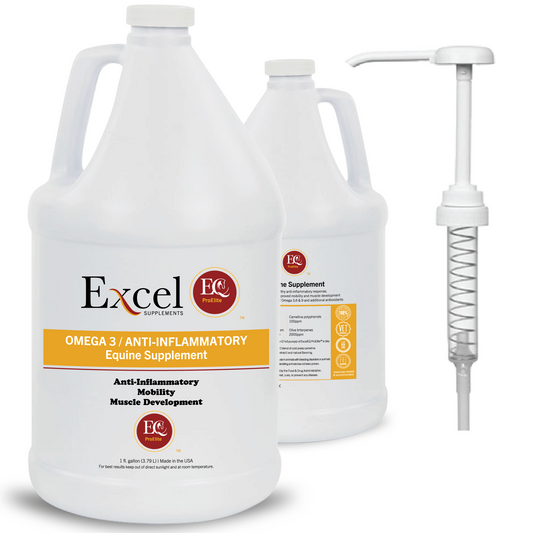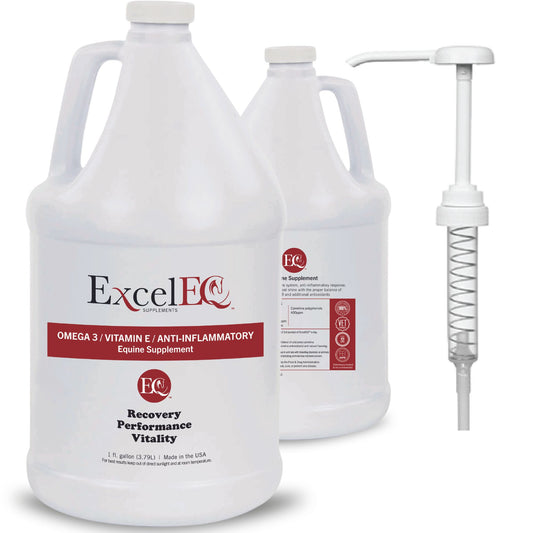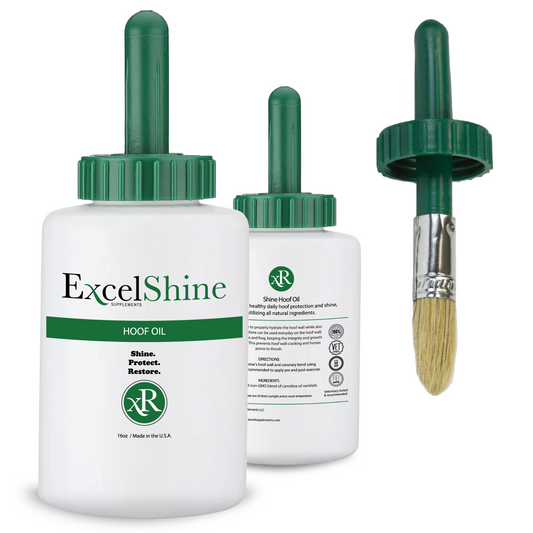Understanding Depo for Competition Horses: Benefits and Considerations
Share
What is Depo-Provera (MPA) and How is it Used in Horses?
Depo-Provera, scientifically known as Medroxyprogesterone acetate (MPA), is commonly administered to horses in various settings, including Hunter/Jumper barns. This medication is used as a form of birth control for mares, with the aim of suppressing the estrus cycle. By blocking the hormones associated with the heat cycle, Depo-Provera is intended to prevent mood swings and behavioral issues in mares. Additionally, some barns use Depo on geldings or stallions displaying "studish" behavior.
FDA Approval and Compounded Form for Horses
While the Food and Drug Administration (FDA) approves Depo-Provera for use in humans, it has not granted approval for use in horses. Horses receive a compounded form of Depo, which is not directly FDA-approved. Depo is administered via intramuscular (IM) injection, and the recommended frequency can vary, with options including weekly, bi-weekly, or monthly injections.
Effectiveness and Controversies
Several studies have questioned the effectiveness of Depo-Provera in suppressing estrus in mares. Despite some veterinarians supporting its use, others argue that alternative treatments like Altrenogest or Regumate might offer better results. Regumate, however, is challenging to administer safely and is not recommended for women to handle, while Altrenogest, available in an injectable form, is notably more expensive than Regumate.
USEF’s Controversial Depo Ban
In 2017, the United States Equestrian Federation (USEF) proposed a ban on Depo-Provera, citing concerns over its misuse to quiet horses for competition. The proposal sparked significant controversy, leading to a workshop on March 13, 2017, where professionals discussed the implications of the ban. The workshop was streamed live, allowing members to contribute suggestions and questions.
Veterinary Opinions and USEF Regulations
Dr. Steven Schumacher and other veterinarians suggested that Depo might interact with GABA receptors in the horse's brain, potentially creating a tranquilizing effect. However, no definitive studies confirm this theory. USEF's stance was that any medication enhancing performance should be banned, though many professionals argued that other substances, such as NSAIDs, also enhance performance without similar scrutiny.
Canada’s Approach and Depo-Related Fatalities
Canada banned Depo due to observed high doses and increased frequency of administration, which they believed might give horses an unfair advantage. In the U.S., a troubling pattern emerged in 2019 with several horse fatalities linked to Depo use. The deaths were attributed to anaphylaxis, an allergic reaction to the medication.
USEF’s Final Decision on Depo-Provera
Following the 2019 incidents, USEF reviewed the data and unanimously recommended banning Depo-Provera from USEF-licensed competitions. The prohibition took effect on December 1, 2019, with sanctions for positive test results beginning on June 1, 2020. Depo-Provera is now classified as a Category III substance, with penalties including a 3-6 month suspension and fines ranging from $3,000 to $6,000 for a first offense.
Read the entire press from USEF board of directors to learn more.
For a more comprehensive list of drug and medication usage, read the latest USEF Guidelines and Rules for Drugs & Medications.
AAEP Performance Horse Guidelines: Medication Usage and Therapeutic Treatments
The American Association of Equine Practitioners (AAEP) has established guidelines to address medication usage and therapeutic treatments for performance horses. These guidelines emphasize the importance of responsible medication management and ethical practices in equine veterinary care. Key points include:
-
Medication Use: The AAEP guidelines stress that medications should be used judiciously and only for therapeutic purposes. The primary goal is to ensure that medications do not provide an unfair advantage or mask underlying issues that could affect a horse's performance or health.
-
Transparency and Record-Keeping: Veterinarians are encouraged to maintain clear and accurate records of all medications administered, including dosage and treatment rationale. This transparency helps in managing medication history and ensuring compliance with competition regulations.
-
Regulatory Compliance: The guidelines align with various equestrian organizations’ rules and regulations regarding medication. Veterinarians must be aware of and adhere to these rules to prevent violations that could result in penalties or bans.
-
Focus on Welfare: The guidelines underscore the importance of prioritizing the horse's welfare and ensuring that therapeutic treatments do not compromise the animal's health or lead to adverse effects.
These guidelines aim to foster ethical practices and uphold the integrity of competitive equestrian sports by ensuring that medication use is both responsible and transparent.
Conclusion
The debate surrounding Depo-Provera’s use in horses highlights significant concerns about its effectiveness, safety, and potential for misuse. As USEF and other equestrian bodies continue to address these issues, it is crucial for horse owners and trainers to stay informed about current regulations and alternative treatments.
For more information on equine supplements and regulations, visit our website and stay updated with the latest industry news and guidelines.






